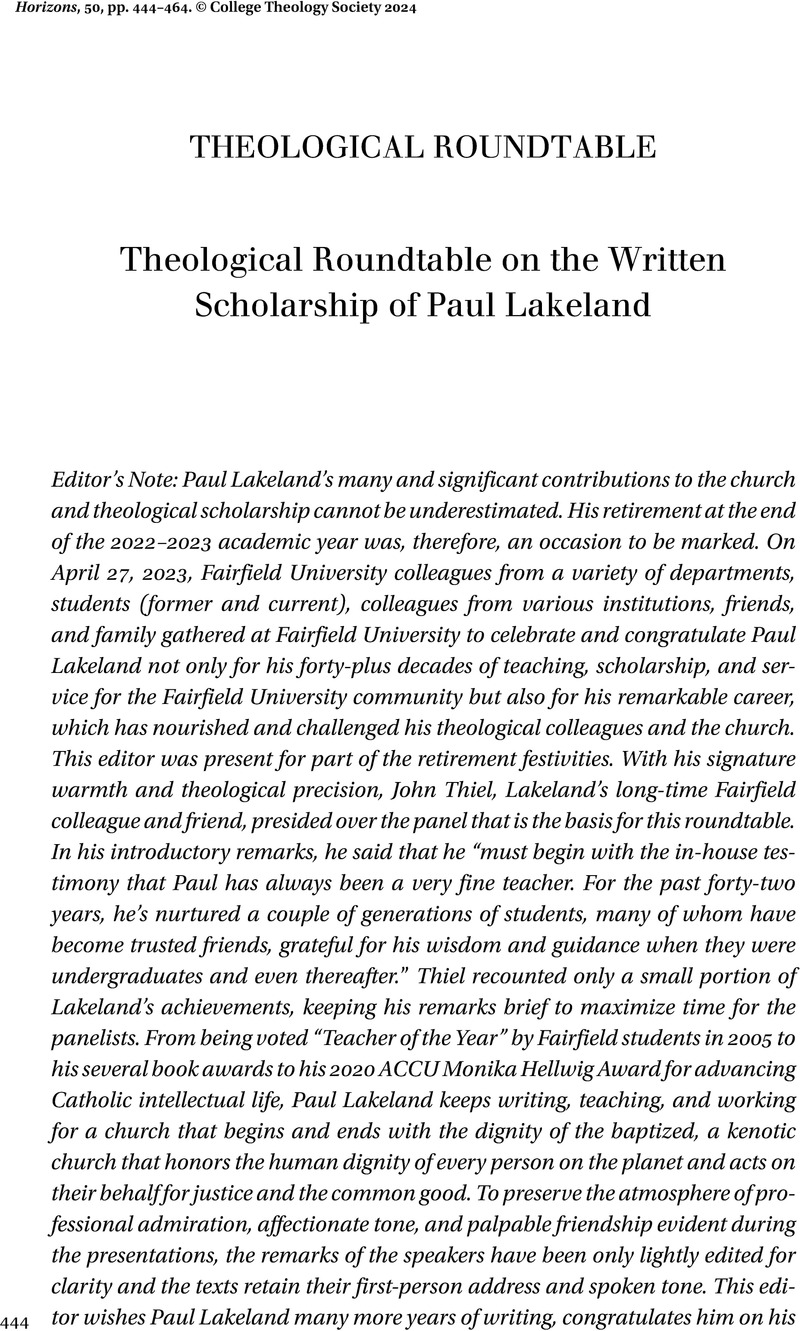No CrossRef data available.
Abstract
An abstract is not available for this content so a preview has been provided. Please use the Get access link above for information on how to access this content.

- Type
- Theological Roundtable
- Information
- Copyright
- © College Theology Society 2024



